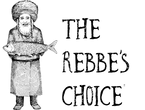This past week’s Parsha, Re’eh, ends discussing the Yomim Tovim; Moshe said to the Jewish people, “V’Simachta B’chagecha – rejoice with your festival” (16:14) What could that mean? It is a very strange way of writing; when we throw a party we rejoice at the party, not with the party. When we go to a wedding we dance at the wedding, not with the wedding. We were given a strange instruction by Moshe on how to celebrate our holidays, to rejoice with the holiday, not to be happy on the holiday but to be happy with the holiday. Parshas Re’eh ends there and then this week’s Parsha, Shoftim, starts on a whole different tune; “You should appoint judges and officers for yourself… in all your gates.”(16:18) The most famous explanation of this Pasuk explains that we each have “gates” to our bodies: our mouth, nose, ears, and eyes. Each of these gates have such an opportunity for uplifting us spiritually, but they can also be a gateway to the most spiritually damaging things. So the Torah is cautioning us to “Place judges and police officers” by our gates, judges to make sure the things we say or do are proper, police officers to make sure the things we see and hear are proper. With these judges and officers at our gates we limit the spiritually negative things that can enter our bodies. This concept in its essence ties in to rejoicing with our holidays.
Each Yom Tov like everything else, has two levels to it, the physical and the spiritual. If you were to explain to someone who has no idea what a Jewish Holiday is how we celebrate he would not find much of a difference in a Jewish holiday versus a random party. We get together and eat a ton, drink a lot, sleep a lot. If anything, much that we are doing seems to be the antithesis to spiritual living. And in reality a Yom Tov could be just that, it could really be the exact opposite of spirituality if we aren’t focused on connecting that physical stuff to the spiritual side of it all. If it is such a challenge why do we have all these physical vices attached to each Yom Tov? Maybe we can understand through a Mashul from the Baal Shem Tov; the son of the king, the prince, was drafted into the royal army like every other boy his age. His father, the king insisted on it for it was the right example to set. So the prince was sent to a training camp, years passed of him being in this army and he nor the other soldiers have heard from their family for a very long time, they all started to become sad and angry. Then one day the prince got a letter from his father, saying how much he missed him and loves him very much. The prince when reading this message from his father, the king, was so filled with joy he just wanted to get up and dance. But he realized all his comrades around him were sad like he used to be, how could he be so joyous when all his comrades are down? So he thought of a way that he could rejoice without hurting anyone’s feelings. He decided he would throw a party for all his comrades. That way everyone would be happy because of the party, and no one needed to know that he was actually celebrating because his father had sent him a letter.
The other soldiers are like our physicality and the prince is like our soul. It may be that we have been so far from our Father, The King – Hashem, for so long we begin to forget and get angry. So we have these Yomim Tovim which are like messages from Hashem, “God will bless you… and you will be happy”(16:15). But our soul, the prince, can’t truly rejoice if the body is low. So we have the physical side of Yom Tov, we let our body rejoice in all the physical pleasures like food, wine, and resting so that our soul can reach its true level of happiness on a Holiday. This is the connection between Shoftim and Re’eh. The pasuk tells us to rejoice with our Holidays, yet the display of physicality seems to overwhelm the spirituality, so that is where the judges and police officers come in. If we guard the gates to our body then the physicality will be a vehicle for unleashing the spiritual. Through the physical we come to enjoy the spiritual – through carefully guarding what we allow to enter our “gates” we allow what’s inside – the soul, to truly rejoice. May we soon rejoice with the Beis HaMikdash in our days.


